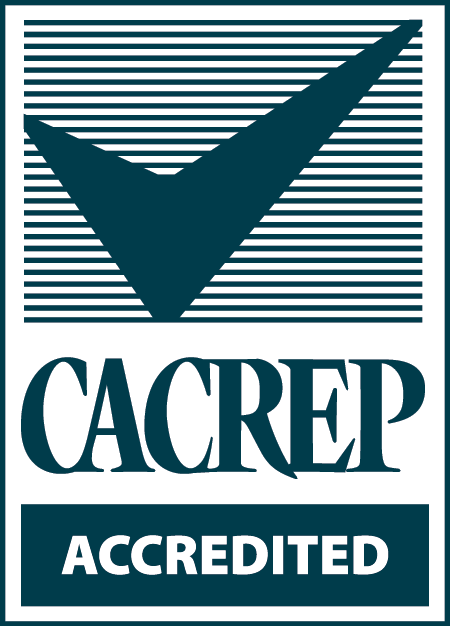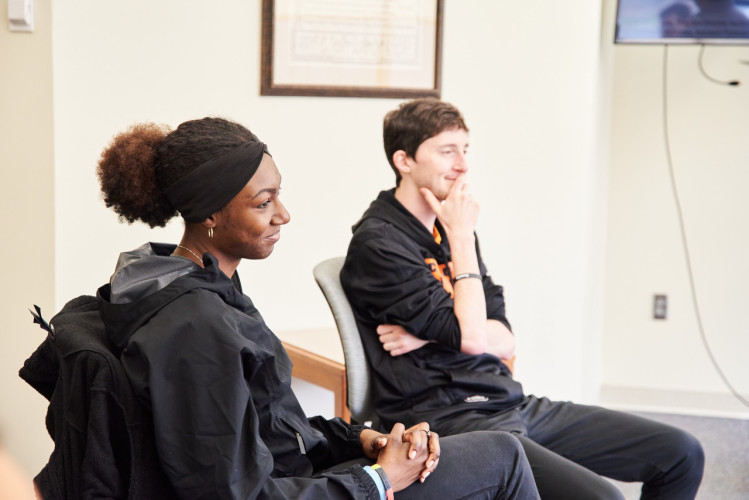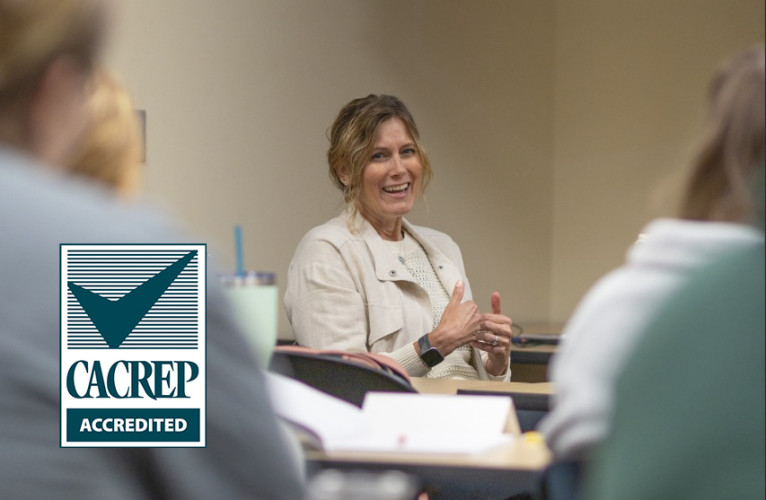Program Details
Our Mission
Huntington University’s CMHC program provides Christ-centered counselor training, equipping counselors to engage diverse cultural contexts through the cultivation of clinical skills, critical thinking, and academic excellence.
Our program seeks to develop the personhood of the counselor through a dynamic process of engaging leadership and students in a variety of contexts, one’s own faith and relationship with Christ, and nurturing an emerging counselor identity through personal development and relationships with others.
Our Guiding Vision
For God to raise up counselors who embody Jesus’ shepherding heart, caring for all with knowledge and understanding (adapted from Jer. 3:15).
The objectives of the HU CMHC program are:
To provide students with experiential and didactic learning opportunities to acquire the necessary knowledge, skills, and dispositions to work with clients within a multicultural and pluralistic society and to:
1. Accurately apply the codes of ethics to a wide range of counseling dilemmas, clients, and contexts (Professional Counseling Orientation & Ethical Practice)
2. Demonstrate a keen awareness of the social and cultural foundations of individuals, families and diverse groups, emphasizing the application of proficient cross-cultural counseling skills (Social & Cultural Diversity).
3. Apply cognitive, personality and moral developmental concepts, theories, and optimal development strategies over the human lifespan (Human Development).
4. Understand and implement theories, approaches and assessments for lifelong career development, including career decision-making and the intersection of work with mental well-being, relationships, and other life roles and factors (Career Counseling).
5. Understand counseling theories, apply a model or models to their practice/context and demonstrate proficient counseling skills for working with a broad range of clients (Counseling & Helping Relationships).
6. Demonstrate an understanding of group dynamics, individual roles and behavior, processes, interventions and stages, and effectively apply counselor group leadership skills (Group Work).
7. Apply the principles of measurement and assessment, including selecting, administering, scoring and interpreting client evaluation methods. (Assessment).
8. Utilize a variety of foundational research methods, designs, statistical procedures, needs assessments, and program evaluations designed to improve counselor effectiveness (Research).
9. Develop an emerging professional identity as a mental health counselor through personal, reflective development, relationships with others, and professional growth opportunities. (Professional Identity of Clinical Mental Health Counselor)
10. Develop an understanding of the contextualization of the Christian faith into evidence-based, ethical and individual counseling practice (Integration).
11. Move towards an understanding of one’s own relationship with Jesus Christ and deepen attachment to God and others through self-awareness and relationships (Spiritual Formation).
What is the course format?
You can complete the Master of Arts degree in clinical mental health counseling program predominantly online. Each course lasts seven weeks and offers a combination of self-directed study and synchronous online sessions. Students are also required to attend a one-time three-day intensive. The intensive meets on our Huntington campus in late August prior to the fall semester.
When are synchronous sessions offered?
Synchronous sessions meet in the evening multiple times per each course, but not weekly. Synchronous session attendance also offers some flexibly for students managing coursework alongside family and employment obligations.
Does the counseling program run on a semester schedule?
Yes. The program runs on a fall, spring, and summer semester format. Each semester contains two seven-week sessions with a one-week break between courses.
What is the cost of the counseling program?
You can find current tuition and fee costs here. Huntington University offers graduate assistantships, scholarships and discounts through various on-campus and off-campus partners. Take time to explore these options with your Admissions Representative.
Is financial aid available?
Financial aid is available for those pursuing a master’s degree in counseling but not for those pursuing the credential program, as it is a non-degree program. Visit our Office of Financial Aid page to learn more about the types of financial aid available.
Are any payment plans available?
Yes. You may choose to pay a portion or the entirety of your tuition in a monthly payment plan. Payment plan options are explained in more detail on our Office of Business and Finance page.
Is a bachelor’s degree required for admission?
Yes. All counseling programs, including the credential program, are designed for students who currently hold a baccalaureate (undergraduate) degree from a regionally accredited university or are in the process of earning one prior to enrolling.
What types of bachelor's degrees are acceptable for entry into the counseling program?
Students holding bachelor’s degrees from any discipline are welcome to apply as long as they complete the specified prerequisites. Prerequisites are only required for the Master of Arts in clinical mental health counseling program.
What prerequisites are required to start the program?
All prerequisite coursework must have a minimum grade of a C or better.
Biblical studies: 3 credit hours
Psychology: 3 credit hours from an Intro or General Psychology, Abnormal Psychology, Clinical Psychology, or Personality Theories/Theories of Counseling course
If you do not currently have these prerequisites met, you may still be accepted into the clinical mental health counseling degree program on a conditional basis and complete up to one year of graduate work without having all academic prerequisites met, contingent upon admissions committee approval. We can assist you in completing these requirements.
What is the Intensive Experience Requirement?
Students who begin in the Fall are required to attend a 3-day intensive experience on-campus at Huntington University. Students who join during the Spring will be required to take an online orientation in Session 1 of Spring and attend the 3-day intensive in the upcoming Fall semester.
What is the timeline for admissions decisions?
You may apply at any time. Admissions decisions will be made in phases throughout the year until we reach capacity. Fall applications must be submitted no later than May 1 for scholarship consideration. The final deadline for fall admission is July 15. The final deadline for spring admission is December 1. Entry into the counseling program is permitted at the beginning of the fall semester in late August and the spring semester in early January. Entry point exceptions may be made for those transferring from another master’s degree counseling program.
How much counseling experience will I receive in the graduate counseling program?
Students in the clinical mental health counseling degree program will complete 700 hours of supervised clinical experience. You will practice your counseling skills in class during your first semester. After you complete your foundation courses, you will begin to see clients. Your counseling practicum will provide 100 hours of practice, including 50 hours of direct client contact with individuals, couples, families, or groups.
Following successful practicum completion, you will secure supervised internships. Internships will take place over two semesters and include 600 hours of clinical practice, including 300 hours of direct client contact. Finding the internship site will be your responsibility, following program guidelines. Practicum and internship experiences meet the Indiana state requirement of 700 hours of clinical practice in your graduate program.
Each state has regulations related to therapy practice, internships, and mental health licensing. Students should become familiar with regulations in their state of residence. In particular, students should become knowledgeable of state regulations regarding distance (online) education, specific course, and internship requirements. Students are responsible for understanding unique licensure requirements in their state.
Licensure Completion Information
How does graduate work differ from undergraduate work?
Master’s-level students are required to take more responsibility for their learning than undergraduates do, and most graduate classes require significant levels of reading and display of writing skill. In graduate programs, you expand your knowledge of a particular discipline and your knowledge of self. Master’s-level counseling work covers more breadth and depth of subject matter with more attention to original sources such as Freud, Adler, Rogers, Perls, etc. Graduate work also encourages higher-level critical thinking, including analysis, synthesis, and evaluation.
Where is Huntington University located?
Huntington University’s main campus is located approximately 25 minutes from Fort Wayne, Indiana. Our park-like, contemporary campus encompasses 160 acres and hosts excellent academic/research facilities. Huntington University also features locations in Fort Wayne, Indiana, and Peoria, Arizona.
The next cohort will begin the program in August, 2026.
Huntington University’s Clinical Mental Health Counseling program can be completed anywhere with access to a computer and reliable internet, except for the 3-day on-campus Fall intensive (CN600). Courses require attendance for 4 live synchronous sessions online, which are scheduled in the evening, although requirements may vary per course. When classes do not meet synchronously, students engage in online asynchronous discussions and learning opportunities. Practicum and Internship courses require students to attend supervision with a faculty member, and classes are scheduled either in the morning or evening for 1.5 hours per week, held online, synchronously.
At Huntington University, success is part of the affordability equation. Tuition and fees are established each spring for the succeeding year. The current graduate tuition and fees list is available here.
Contact our admissions team to review scholarship opportunities and discount partnerships.
The Office of Financial Aid is here to help with the process of paying for graduate school.
Your coursework will include a mix of lecture and practical clinical experience. A full list of the courses required for the Master of Arts degree in clinical mental health counseling is available here.
 Council for Accreditation of Counseling and Related Educational Programs (CACREP)
Council for Accreditation of Counseling and Related Educational Programs (CACREP)
- Huntington University’s Clinical Mental Health Counseling program has received full accreditation from the Council for Accreditation of Counseling and Related Educational Programs (CACREP) through October 31, 2033. To learn more, see the press release below.
- CACREP is a recognized accrediting agency by the Council for Higher Education Accreditation (CHEA) and holds full membership status with the Association of Specialized and Professional Accreditors (ASPA) and the International Network of Quality Assurance Agencies in Higher Education (INQAAHE).
- CACREP
500 Montgomery Street, Suite 350
Alexandria, VA 22314
Policies & Requirements
Required Information:
- A completed graduate program application.
- Two recommendation letters, preferably including at least one academic reference.
- A professional résumé summarizing your life and work experiences.
- Official transcripts from the college or university awarding the highest degree you have completed. These transcripts must arrive via mail or electronic submission directly from the college/university. An undergraduate cumulative GPA of 3.0 is desired.
- All prerequisite coursework with a minimum grade of a C or better. Students who have not met prerequisites may be accepted on a conditional basis, provided they complete prerequisites within the first year of graduate study. All prerequisites are available at Huntington University.
- Biblical studies - 3 credit hours
- Psychology - 3 credit hours from Intro or General Psychology, Abnormal Psychology, Clinical Psychology, or Personality Theories/Theories of Counseling.
- Complete the Counseling Program Questionaire
Mailing Address:
Huntington University Graduate Programs
2303 College Avenue
Huntington, IN 46750
Students who begin in the Fall are required to attend a 3-day intensive experience on-campus at Huntington University. Students who join during the Spring will be required to take an online orientation in Session 1 of Spring and attend the 3-day intensive in the upcoming Fall semester.
Registration for graduate students is open until one week prior to the first day of class. All students are registered by the Office of Graduate and Online Programs. Students may view their schedules on the HU Portal.
Intensive Experience Requirement
Students who begin in the Fall are required to attend a 3-day intensive experience on-campus at Huntington University. Students who join during the Spring will be required to take an online orientation in Session 1 of Spring and attend the 3-day intensive in the upcoming Fall semester.
Attendance Policy
Due to the concentrated scheduling and the emphasis upon participatory learning, students are expected to participate weekly in the online classroom. Failure to participate in the first week of a course will result in an automatic drop from the course.
Synchronous sessions meet multiple times per each course, but not weekly. Synchronous session attendance also offers some flexibility for students managing coursework alongside family and employment obligations. Synchronous sessions begin anywhere from 6:00 p.m. ET to 8:00 p.m. ET and typically last less than 90 minutes.
Adding, Dropping, and Withdrawing from a Course
To add, drop, or withdraw from a course, students may do so by contacting the assistant for Graduate Programs.
Adding a Course
Students may add courses to their schedule in consultation with their academic advisor. A course cannot be added less than one week before the start date of the semester/session.
Dropping a Course
Students may only drop a course if they have not participated in any manner on the course website. Students who drop will receive no record of the course on their transcripts, and their GPA will not be impacted.
Withdrawing from a Course
Students who have participated in a course may withdraw from the course. Students who withdraw during the first week of class receive a grade of W on their transcripts, but there is no impact on their GPA. Students who withdraw after the start of the second week of class receive a grade of WF on their transcripts, and their GPA will be impacted. Students who do not officially withdraw from a class by the stated deadlines will receive an F for the class.
Students who are receiving financial aid must remain continuously enrolled and maintain full- or part-time enrollment status.
Withdrawal from Graduate Programs
To withdraw from the graduate program, students must notify the Office of Graduate and Online Programs. Students who do not officially withdraw from the program are given grades of F. Students receiving financial aid must contact the Office of Financial Aid regarding the implications on financial responsibilities.Students receiving financial aid must contact the Financial Aid Office regarding the implications on financial responsibilities.
Intensive Experience Requirement
Students who begin in the Fall are required to attend a 3-day intensive experience on-campus at Huntington University. Students who join during the Spring will be required to take an online orientation in Session 1 of Spring and attend the 3-day intensive in the upcoming Fall semester.
Academic Calendar
The Master of Arts degree in clinical mental health counseling program offers courses in a seven-week accelerated format. Two consecutive sessions occur during fall (late August through early December), spring (January through April), and summer (late April/early May through mid-August).
Canceling Classes
Huntington University reserves the right to cancel classes with an enrollment of fewer than five students and to close classes at maximum announced enrollment.
Academic Probation and Dismissal
Any regularly enrolled graduate student whose cumulative GPA falls below 3.0 will be placed on academic probation. Students will be placed on academic probation for the following semester that they are in attendance at Huntington University. To be removed from probation, students must complete an additional six hours with a cumulative GPA of 3.0 or higher. If sufficient progress has not been made to remove the probation, students may be dismissed from the graduate program. Graduate students must have a minimum cumulative GPA of 3.0 to remain in good standing and to be awarded a graduate degree. Graduate students whose semester GPA falls below 1.0 may be dismissed from the program. Probation and appeals decisions are made by the Graduate and Professional Programs Committee.
A student may also be placed on a probationary contract due to unprofessional conduct, ethical violations, and other concerns. In such cases, the program director, with the input of program faculty, will develop the contract to address the relevant concerns. Failure to comply with the stipulations of the contract within the specified time period may result in dismissal from the program.
All graduate clinical mental health counseling students must complete the following to be eligible for graduation and to meet the educational requirements for licensure.
• 45 credit hours of foundation coursework
• 6 credit hours of mental health concentration
• 9 credit hours of clinical training
• Submit an application for graduation form by December 1 of the academic year of graduation
• Attend the commencement exercises for the conferral of the degree
This is a total of 60 credit hours, which includes 700 hours of clinical experience (required for licensure). Half of these hours must be direct client contact.
All graduate programs must be completed within seven years. Failure to complete the program within the allotted seven years may result in a need to retake classes.
Licensure Standards
Huntington University's Master of Arts degree in clinical mental health counseling (60 credit hours) meets or exceeds all of Indiana's standards for licensure as a Licensed Mental Health Counselor (LMHC). Not an Indiana resident? Review Huntington University's program licensure assessment by state.
Interested in learning more?
If you have any questions, please contact graduate@huntington.edu or (800) 600-4888.
Student Outcomes 2024
Acceptance Rate | # of Graduates | Completion Rates* | Examination Pass Rates^ | Employment Rates" |
|---|---|---|---|---|
96% | 13 | 79% | 100% | 100% |
*Completion Rate: This number represents those students who began in 2021 or 2022 and graduated in 2024.
^ These numbers represent responses to alumni surveys (who graduated in 2024) and those who have taken the NCE.
“These numbers represent the responses to alumni surveys indicating the number of graduates who entered the profession who obtained employment within 0 and 6 months after graduation.








